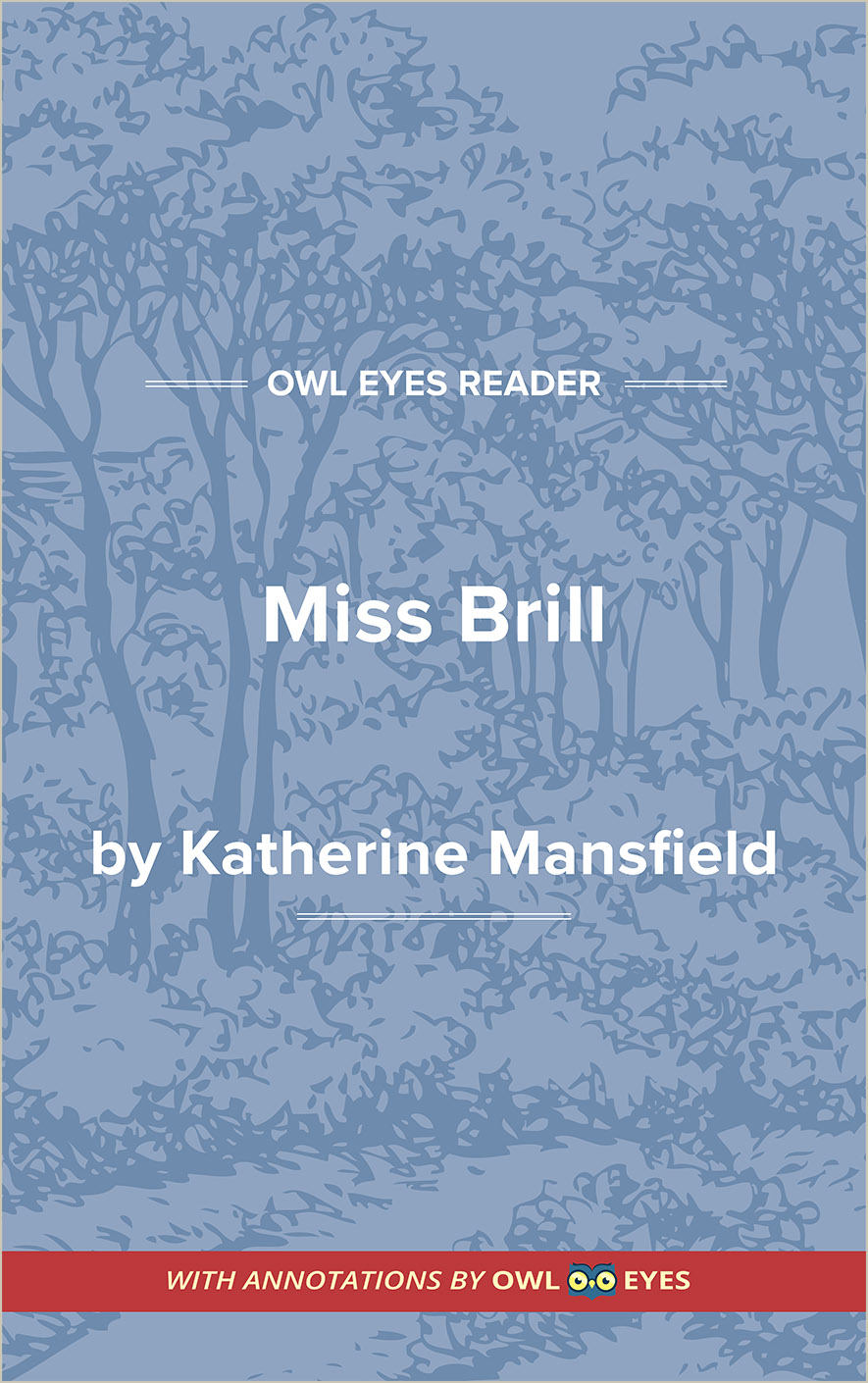Analysis Pages
Themes in Miss Brill
Loneliness: Miss Brill’s loneliness is suggested by her actions and the way she reflects on her life. She thinks about her students and a man whom she reads to; these details reveal that she does not have a lot of interactions with friends or family. She is even separated from the reader; we never learn her first name. The connection we have of Miss Brill is constructed to be distant. The final moment when she returns the fur to its box and hears something crying symbolizes her own isolation and despair.
Illusion vs. Reality: Miss Brill constructs an elaborate fantasy about reality. The most central fantasy she focuses on includes everyone in the park as part of a play. This fantasy connects these individuals in a profound way. As part of the play, Miss Brill can imagine that she is less isolated. Ironically, she does not see herself as one of the “odd” old people that she judges in the park. However, her fantasy about connection to others and unrealistic self-perception fall apart when the young couple mocks her with cruel words, shattering Miss Brill’s illusion about her reality.
Youth and Old Age: While she observes the many people in the park, Miss Brill dismisses many of the elderly couples, remarking that they are “odd” or out of place. When the young couple arrive and speak cruelly about Miss Brill, they reveal the generational divides between young and old: the young view the elderly as pitiful.
Themes Examples in Miss Brill:
Miss Brill
🔒"Other people sat on the benches and green chairs, but they were nearly always the same, Sunday after Sunday, and—Miss Brill had often noticed—there was something funny about nearly all of them..." See in text (Miss Brill)
"—not sadness—no, not sadness—..." See in text (Miss Brill)
"Miss Brill had wanted to shake her..." See in text (Miss Brill)
"She unclasped the necklet quickly; quickly, without looking, laid it inside. But when she put the lid on she thought she heard something crying..." See in text (Miss Brill)
"And when she breathed, something light and sad—no, not sad, exactly—something gentle seemed to move in her bosom..." See in text (Miss Brill)
"They were odd, silent, nearly all old, and from the way they stared they looked as though they'd just come from dark little rooms or even—even cupboards..." See in text (Miss Brill)

